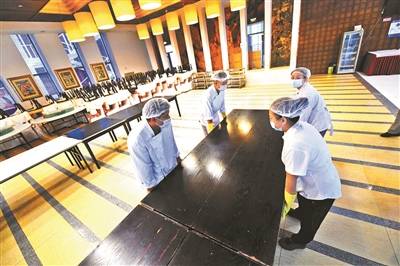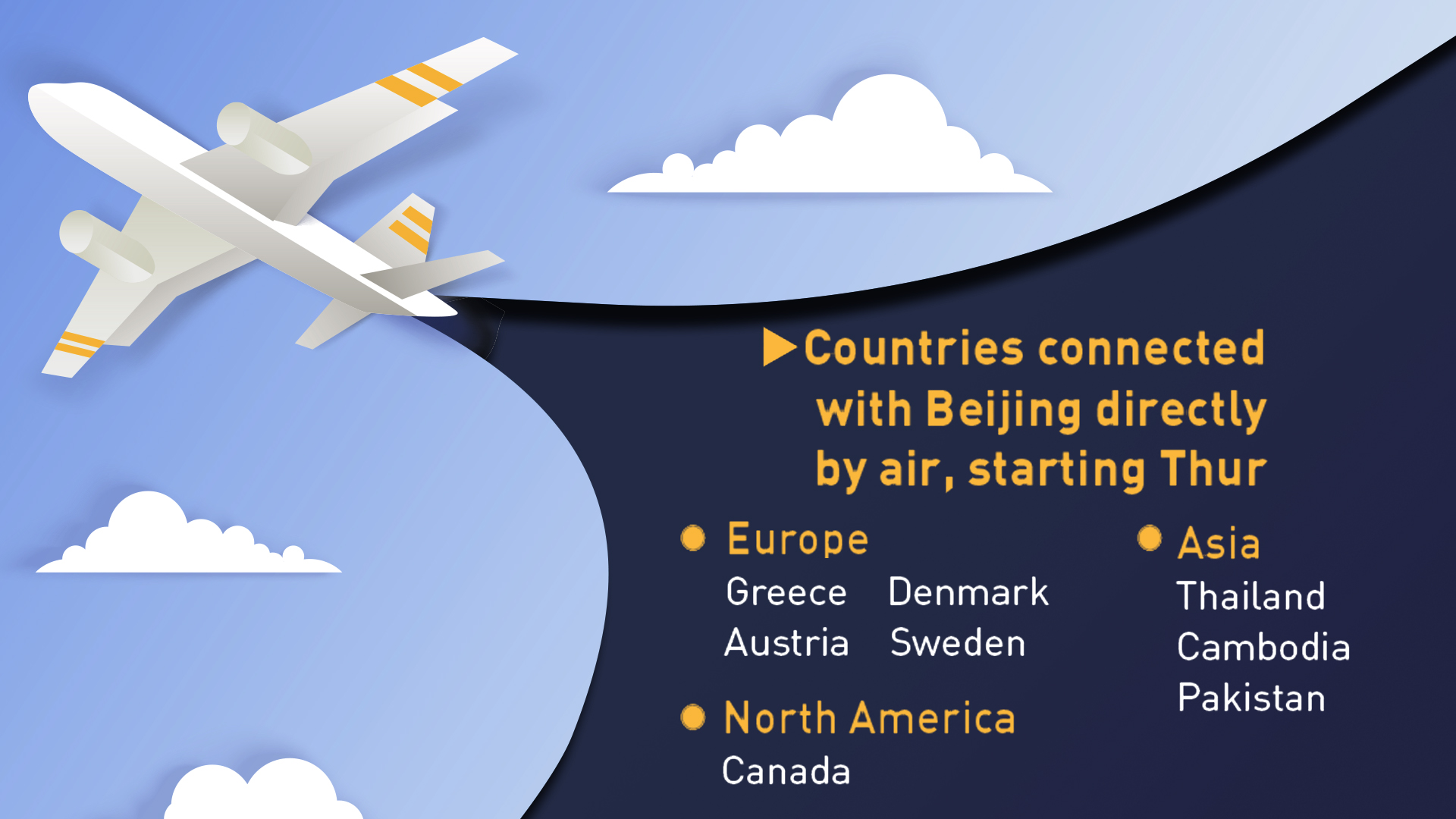
Staff of the Daxing isolation center move a table to prepare meal distribution for travelers from international flights, Beijing, China. /Beijing Youth Daily
Staff of the Daxing isolation center move a table to prepare meal distribution for travelers from international flights, Beijing, China. /Beijing Youth Daily
On Thursday, Beijing resumed its direct international flights with eight countries: Thailand, Cambodia, Pakistan, Greece, Denmark, Austria, Sweden, and Canada. The reopening comes more than six months after the outbreak of the epidemic in the country and its successful containment. China was able to control its cases of local transmissions of the virus with only occasional small-scale resurgences in some cities.
The city is now welcoming passengers from overseas, but strict anti-COVID-19 prevention measures continue to be in place to control imported cases. According to Beijing health authority spokesman Gao Xiaojun, if three or more confirmed cases are found on an international flight into Beijing, the flight will be re-directed to another Chinese city. During trial operations, direct international flights to Beijing will have a passenger cap of around 500 per day.
All direct international flights will land at T3-D zone of Beijing international airport. Travelers onboard will undergo a 14-day quarantine period for medical observation in a collective isolation center and take nucleic acid tests twice: one is taken in the airport before they are sent to the center, and the other is taken before they leave the center when the 14-day quarantine is over.
The first batch of passengers from Phnom Penh, the capital of Cambodia, arrived at the airport on Thursday morning, and passengers were transported to an isolation center in the Daxing district. It's the first collective isolation center that has been put into use and it's able to accommodate 340 travelers.
While the flight was on the way, more than 40 workers from seven working groups including the health observation, disinfection, communications, and security and logistics were already waiting for the arrival of the passengers at the entrance zone of the center.

What does it look like in the center?
To achieve no touching during the check-in process, a notice and a QR code were put into each room for passengers. Travelers can register their information online by scanning the code. And they will also join Wechat groups in case they may need help during the isolation period.
"There is no physical touch between travelers and workers. They can ask any help through the Wechat group," Zhang Tengjiao, an official of Daxing district told Beijing Youth Daily.
He said that there are two "butlers" on each floor, providing online services 24 hours a day, including psychological counseling. In addition, they also provide common medicines and first-aid equipment. Travelers can ask help online, and whatever is necessary will be delivered to the door by the worker.
As for the food, meals will be served at a fixed time. According to Zhang, breakfast is served from 7:00 to 8:00, lunch is from 11:30 to 12:30, and dinner from 17:30 to 18:30. When it's time for the meal, kitchen staff will put the food on a stool at the door of each room.
The center provides halal meals for Muslim and in the future, it will provide specialized food for various travelers, for example, for vegetarians and vegans. According to officials, the travelers are not allowed to order take-out during the isolation period.
Inside the room, travelers are provided with shampoo, bath wash, toothpaste, soap, towels, detergent and other cleaning products. Besides, there are also two kinds of spray disinfectants available: one for toilet disinfection and the other for desktops, garbage, masks, etc.
There are yellow medical garbage bags placed in each room and all the garbage produced during the observation period is treated as medical waste. The waste will be disinfected twice, and then transported by a third-party company.
During the quarantine period, travelers need to take body temperature checks by themselves three times a day and report the results to health workers. When the 14-day isolation period is over, travelers have to take a nucleic acid testing, and only when they get the negative result, they can leave the center with an official certificate.